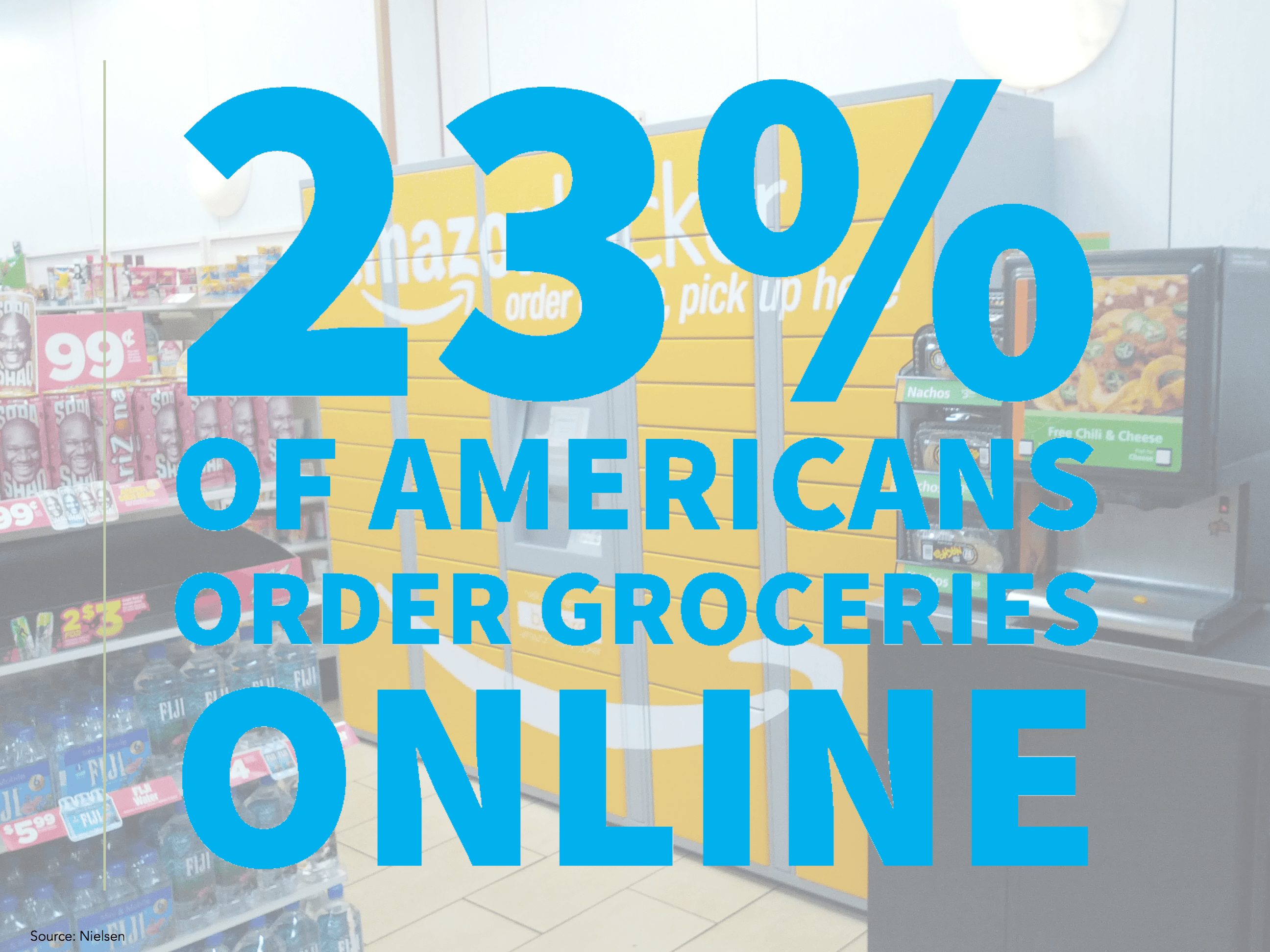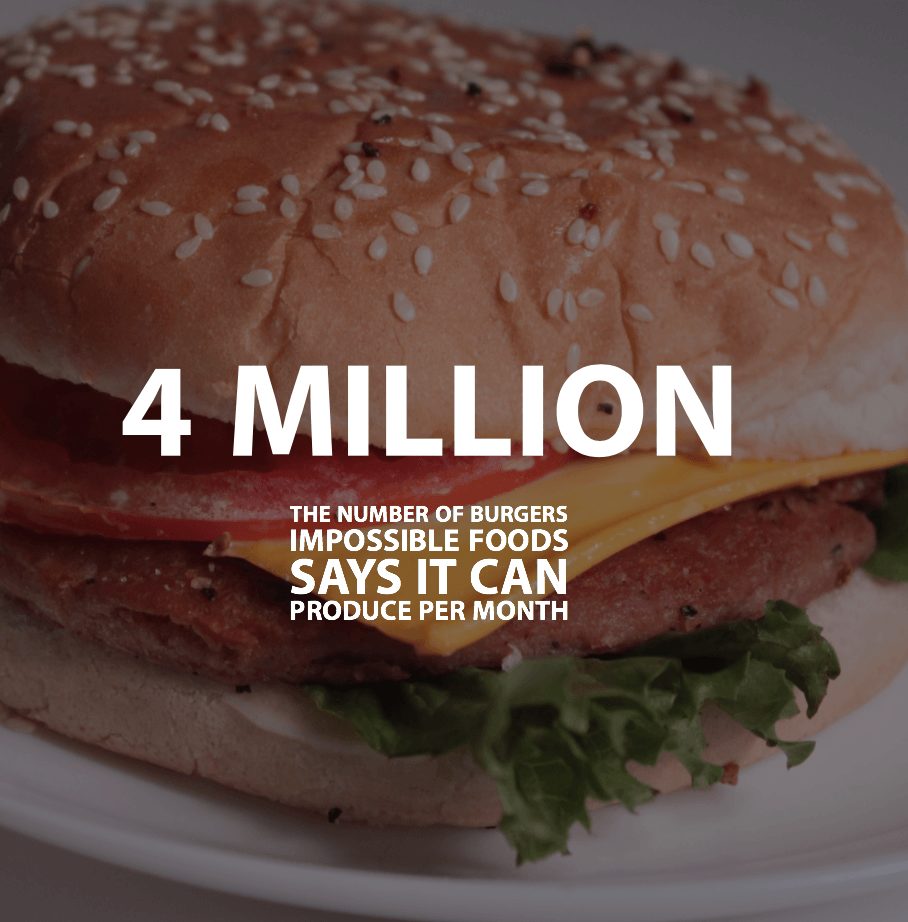With Amazon’s acquisition of Whole Foods, new dietary habits shaping the way we eat, and whole new dining categories cropping up, it’s clear that the restaurant industry (and food, at large) is in flux. In a November webinar, CB Insights Senior Intelligence Analyst Zoe Leavitt delved further into new investment into F&B, along with the latest trends to attract investors. Here’s what we learned about how the latest crop of food startups are transforming our diets — and the industry at large.
Food Trends Are Giving Way to Massive Investment
Restaurant chains are facing a wide variety of challenges, be it activist investors or new ways of eating. Food delivery, for one, has dramatically altered the landscape. Already, grocers and restaurants alike are facing falling foot traffic and losing share to e-commerce options. Amazon, for instance, captures nearly 20% of the online grocery share.

We all know about Amazon, of course (though, to be clear, the full ramifications of its effect on the restaurant industry remains to be seen). A slew of high-momentum F&B startups are also making their mark. Leavitt noted two major upheavals in the F&B sector: Chobani a startup that, in 2016, became the top-selling yogurt brand in the country (and spurred the growth of the yogurt industry as a whole) and Halo Top, a healthy ice cream startup, became the number-one selling ice cream pint in 2017 and eroded Unilever’s market share.
Deal to F&B startups have been setting new records every year since 2013, according to CB Insights data. Alongside the number of deals, the number of investors backing these startups has also skyrocketed. One of the most prolific investor is JAB Holdings, which has focused mostly on coffee in recent years, acquiring Panera, Peet’s Coffee & Tea, Stumptown and Intelligentsia. Peet’s itself recently made its first equity investment into another beverage trend, acquiring Revive Kombucha.
Large Corporates Are Looking to Small Food Startups for Inspiration
Rather than wait around for the next Halo Top or Chobani to surface, corporates are getting into the game themselves, launching venture funds, accelerators and incubators to form relationships with food startups early on. The varied investment strategies of Campbell Soup, Kellogg’s, and other large brands is proof positive that even small startups are making a big impact.
Nestlé, the world’s largest F&B company, has been increasingly active in the startup sector, investing in healthy foods (they acquired frozen food product Sweet Earth, as well as human-grade pet food product Terra Canis. They also invested in Freshly, a direct-to-consumer meal kit company, and acquired Blue Bottle, a premium coffee chain, for $700 million.
Unilever has been active as well, acquiring two tea companies (Tazo, which is acquired from Starbucks, and Pukka Herbs), along with other companies with a focus on healthy foods. Kellogg’s has focused largely on investments into the healthy breakfast category through its investment arm, eighteen94 Capital. General Mills launched its venture fund, 301 Inc., in 2015. Nearly all its investments are in vegetable and plant-based products.
Startups are Leveraging Healthful Ingredients To Attract Both Consumers and Investors
Startups are betting big on unique, healthful ingredients — things like probiotics, turmeric, algae, plant proteins, and more — to woo both funding dollars as well as customers. Of course, this segment hasn’t been without it’s challenges. Case in point: Soylent, the meal replacement drink startup which launched in 2013 with $3 million in crowdsourced funding. By May 2017, the company had raised $50 million in venture capital. But the journey came with a few pretty high-profile setbacks.
In 2016, a number of customers became violently ill after consuming Soylent’s powder mix and protein bars. The company reformulated the powder but has yet to re-introduce its bars. Even more unwanted attention came just months later, after Soylent issued a voluntary recall when it discovered a small amount of milk product may have inadvertendly slipped into some of its lactose- and milk-free products. Canada also recently banned Soylent (arguing it doesn’t contain enough nutrients to be a true meal replacement), a signal that future struggles could be in the pipeline.

Lab-grown meat and other meat substitutes is another unique trend that we’ll start to see more of in the coming months and years. Even traditional meat companies are hedging their bets by investing in unique and natural products — Tyson Foods, a leading meat producer, invested into Beyond Meat; Cargill invested into Memphis Meats (a lab-grown substitute); and dairy producer Dean Foods invested into Good Karma, which sells dairy-free beverages.
The cost of lab-grown meat has dropped significantly since it was first introduced. In 2013, MosaMeat unveiled a burger that cost $300,000 to produce. Today, a lab-grown or synthetic burger costs roughly $11 to produce.
New Technologies Will Shape the Industry Moving Forward
Overall, technology — think AI, drones, restaurant robotics, and blockchain — will transform food supply chains and distribution. But new trends will shape them, as well. For instance, supply chains will likely scale and grow more efficient as products like pea protein begin to take off. Other long-term trends to watch fermentation technologies (Ginkgo Bioworks uses fermentation to design custom microbes for clients like cosmetics and meat companies, while Finless Foods uses fermentation to culture synthetic fish, like Bluefin Tuna).
Technology could also impact the environment, with more of a push being made toward edible packaging (to-go bowls made of seaweed, for instance). Lab-grown meat will likely have a major impact, as well, leading to a massive reduction in water and land usage, as well as greenhouse gas emissions.
Biotech will alter the food supply chain dramtically, allowing products to stay fresher, longer. Longer shelf lives will benefit farmers (who wouldn’t have to get rid of their product so quickly) as well as restaurants (who could reduce waste due to less spoilage).
About Aaron Allen & Associates
Aaron Allen & Associates is a leading global restaurant industry consultancy specializing in growth strategy, marketing, branding, and commercial due diligence for emerging restaurant chains and prestigious private equity firms. We work alongside senior executives of some of the world’s most successful foodservice and hospitality companies to visualize, plan and implement innovative ideas for leapfrogging the competition. Collectively, our clients post more than $100 billion, span all 6 inhabited continents and 100+ countries, with locations totaling tens of thousands.
Other Relevant Content

Restaurant Debt Ratios
September 21, 2017 No Comments Read More »

2017 Restaurant Mergers and Acquisitions: An Update
September 21, 2017 No Comments Read More »

A Roundup of Restaurant Inventory Management Software
September 18, 2017 No Comments Read More »

U.S. Steakhouse Restaurant Sales: A Bright Spot In the Industry
September 12, 2017 No Comments Read More »

